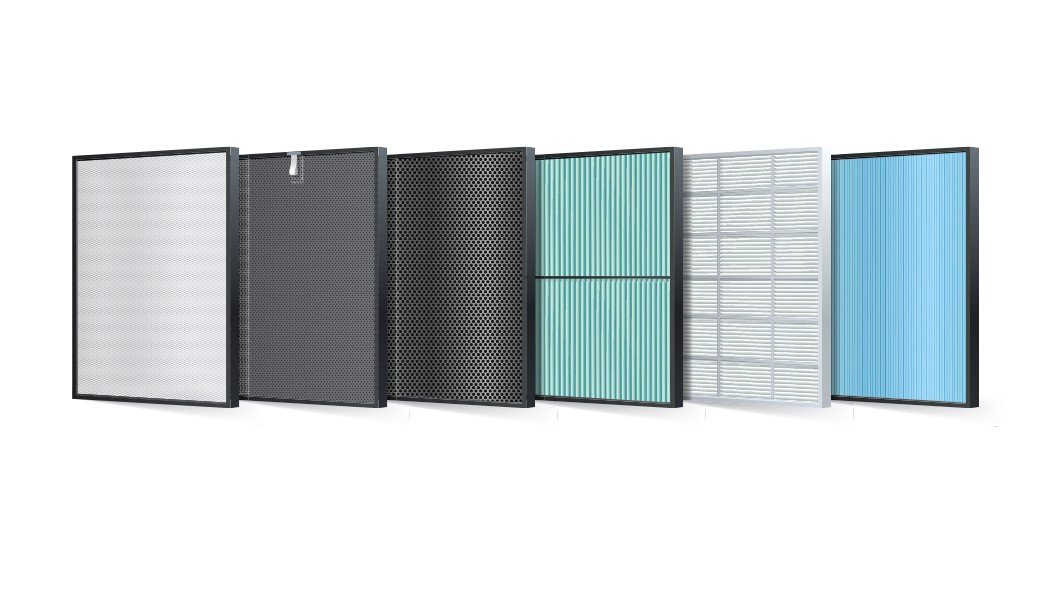When we talk about air filters energy efficiency, we refer to the ability of the filter to allow the necessary airflow while effectively capturing particles and contaminants. High-efficiency particulate air (HEPA) filters, for example, are known for their effectiveness in trapping pollutants but can sometimes restrict airflow if not appropriately sized or regularly maintained. It's important to strike the right balance between air filtration and energy use to ensure that your heating and cooling systems operate optimally.
One way to improve air filters energy efficiency is to regularly check and replace filters as recommended. Dirty or blocked filters reduce airflow, forcing your HVAC system to consume more energy to maintain desired temperatures. In addition, selecting the right type of filter for your system is crucial. Filters with a higher minimum efficiency reporting value (MERV) can capture finer particles but may also impede airflow if not compatible with your system's design.
Consider investing in smart technology that helps monitor filter performance and alerts you when it's time for a change. These advancements can significantly enhance air filters energy efficiency by ensuring your system is always running at its best. By being proactive about maintaining your air filters, you can improve energy efficiency, extend the life of your HVAC system, and enjoy a healthier indoor environment.
Benefits of Upgrading Your Air Filters
Upgrading your air filters is a smart move that can lead to significant benefits for both your home and your wallet. One of the most important advantages is improved air filters energy efficiency. By choosing higher-quality filters, your heating and cooling systems don't have to work as hard to pull air through, resulting in lower energy consumption. This translates to reduced monthly utility bills and a smaller carbon footprint.
Additionally, modern air filters are designed to catch a greater variety of airborne particles, including dust, pollen, and allergens. This not only enhances your indoor air quality but can also make your home more comfortable for those who suffer from allergies or respiratory issues. The investment in better air filters is not just about energy savings; it's also about creating a healthier living environment.
Another key benefit of upgrading your air filters is the increased lifespan of your HVAC system. When your filters are clean and effective, the system doesn’t have to strain as much to maintain the desired temperature. This reduced wear and tear means fewer repairs and a longer life for your heating and cooling units. Maintaining your system’s efficiency through upgraded air filters can save you money in the long run and keep your home comfortable year-round.
Simple Tips for Better Air Filter Use
Using air filters more efficiently can have a significant impact on your home's air quality and your energy bills. Here are some simple tips to enhance air filters energy efficiency. With just a few adjustments, you can ensure your air filters work effectively, saving both energy and money.
First, remember to change your air filters regularly. Clogged or dirty filters restrict airflow, making your HVAC system work harder than necessary. Consider checking your filters every month and replace them at least every three months. If you have pets or live in a dusty area, you may need to change them even more frequently.
Next, ensure you choose the right filter for your system. Not all air filters are created equal, and selecting one with adequate MERV ratings can improve air filters energy efficiency. A higher MERV rating means a filter can trap smaller particles but keep in mind that extremely high-rated filters can restrict airflow in some HVAC systems. Check your equipment specifications or consult an expert to find the best filter for your needs.
Lastly, don't overlook the importance of sealing gaps and leaks in your home. Even the best air filters won’t perform optimally if outside air is seeping in through cracks or poorly sealed windows. Use caulking or weather stripping to seal any leaks, and you’ll help your air filter do its job more effectively, ultimately improving air filters energy efficiency and providing a more comfortable indoor environment.
Measuring Savings from Improved Air Filters
When it comes to improving air filters energy efficiency, one of the key factors to consider is how to measure the potential savings. Enhanced air filters can lead to reductions in energy consumption and improved indoor air quality, but understanding the financial impact is crucial for making informed decisions. Homeowners and businesses alike can benefit significantly from swapping out older filters for more efficient models.
To measure savings, begin by evaluating current energy usage. Note the monthly energy bills and consider benchmarking against historical data. Next, install higher efficiency air filters that are designed to optimize airflow and capture more particulates. These filters often have higher Minimum Efficiency Reporting Values (MERV) ratings, which indicates their effectiveness. Once installed, track energy consumption over a few billing cycles to observe any changes in costs.
It's also important to consider the lifespan of your air filters. Improved air filters energy efficiency typically means they last longer and require less frequent replacements. By calculating the cost savings from fewer filter replacements alongside the reduction in energy bills, you can get a clearer picture of the overall savings achieved. Don’t forget to factor in the potential reductions in maintenance costs for HVAC systems that operate more efficiently with quality air filters.
In addition, monitor the air quality in your space. Higher efficiency air filters can remove more dust, allergens, and pollutants from the air, contributing to a healthier environment. While this may not directly translate to dollar savings, it can lead to enhanced comfort, better health outcomes, and potentially lower medical expenses. Ultimately, measuring the savings from improved air filters provides a comprehensive view of both financial and health benefits, making it easier to justify the investment in enhanced air filters.
